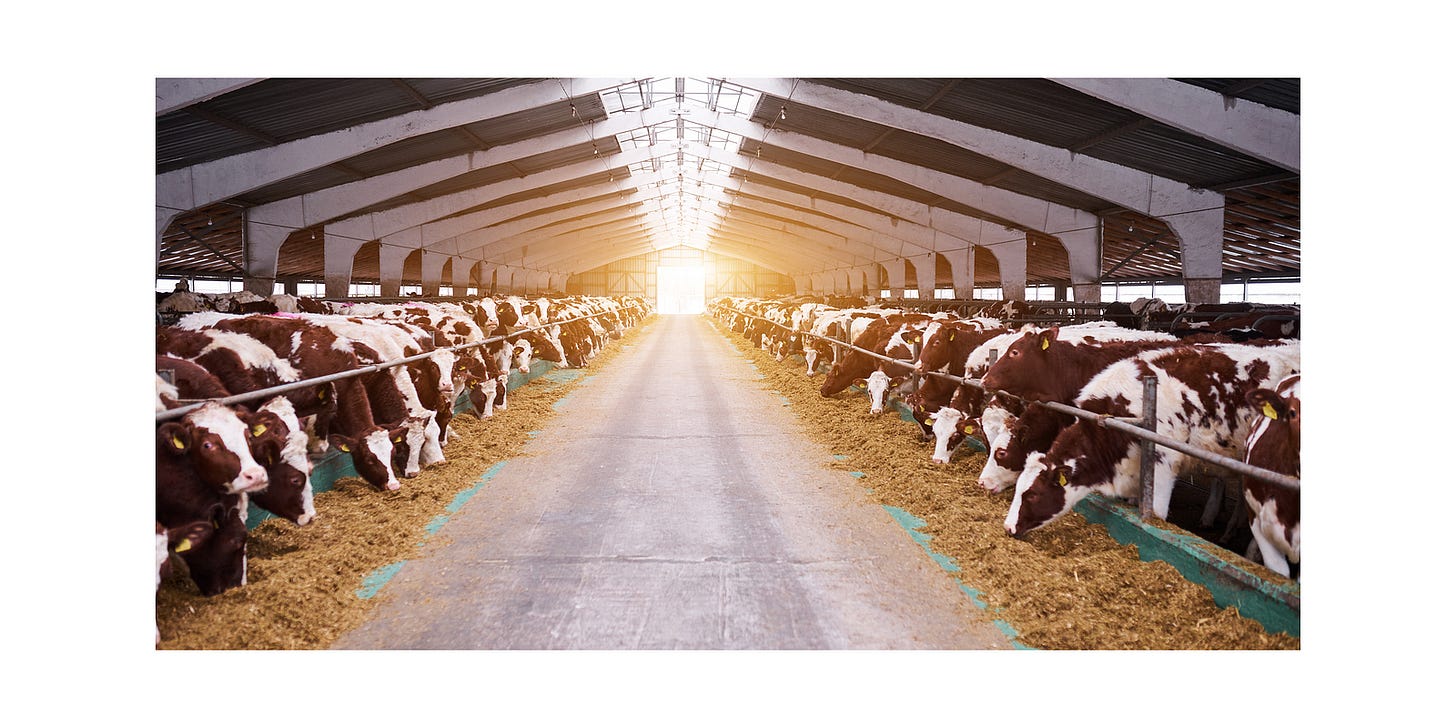It is rare that I come across a crossword term in a mini puzzle that I am unfamiliar with. The grids are just too small but, occasionally, I do get a surprise.
On my Friday, January 6 Mini Crossword calendar page I got the clue:
Rhyming term for a law that forbids undercover filming of farm animal conditions.
I have to take this moment to let readers know that I had a brief stint in PETA. They sent me a lot of free material that I distributed in front of a grocery store in my neighborhood. I am sure my mother was just delighted. I ditched the protesting but stayed vegetarian for six years. I can’t even say that I stopped for a good reason. One day, I saw beef jerky at a gas station and decided I wanted it.
So, I ate it and lost the high ground I thought I had earned by being “unique.”
Adolescent years are so weird.
Anyways, I did not know this answer, but I am assuming the law is in regard to PETA and PETA-adjacent groups breaking into farms and circuses to record gross misconduct. (Which I still firmly believe is a thing.)
The answer is: Ag-Gag.
Easy enough to remember for the next crossword puzzle. The term “ag-gag” is derived from “agricultural gag,” and encompasses any legislation that is designed to restrict undercover reporting on agricultural facilities, particularly those involving animal farming.
These laws often criminalize unauthorized recording or photography on farms, making it illegal for whistleblowers, activists, or journalists to document and publicize instances of animal cruelty, unsafe working conditions, or environmental violations.
As with anything political, there are two entrenched sides on either side of this fence. Proponents argue that ag-gag laws aim to protect the agricultural industry from false accusations and maintain security and privacy on farms.
Critics assert that these laws hinder transparency, impede freedom of speech, and obstruct efforts to address issues related to animal welfare, food safety, and environmental concerns in the agricultural sector.
The debate surrounding ag-gag laws reflects the tension between industry interests and the public’s right to information about the sources of their food.
The first ag-gag law was enacted in Kansas in 1990. However, the term “ag-gag” itself gained popularity in the 2010s as several states introduced similar legislation.
As for the first time an ag-gag law was used in court, it can vary by state, as different states passed such laws at different times. The enforcement and legal challenges of ag-gag laws have been ongoing, with court cases arising as these laws face scrutiny for potential violations of constitutional rights, such as freedom of speech and freedom of the press.
Personally, I would like to know how the sausage is made… but I do understand privacy issues on farms. We should all be held to the highest of standards. (This coming from a woman who still regularly buys gas station beef jerky.)
Keep your pencils sharp and your pens at the ready!
Kasey
P.S. I have started on my second grid for the NYT- waiting to hear back on the first submission! But the theme for #2 is maps and I am excited!






